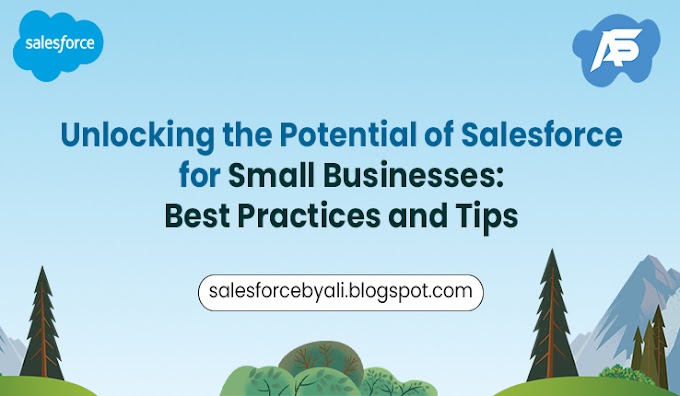As more small businesses look to streamline their operations and improve customer engagement, Salesforce has emerged as a powerful solution. However, implementing Salesforce can be a daunting task, especially for smaller organizations with limited resources. In this article, we will explore the best practices and tips for small businesses to successfully implement Salesforce and maximize its benefits.
First, it is important to identify your business goals and map out a clear strategy for how Salesforce can help achieve them. This includes identifying the key processes and workflows that can be automated or streamlined using Salesforce. Additionally, it is important to train your team on the platform and establish clear roles and responsibilities.
Next, take advantage of Salesforce's vast ecosystem of third-party apps and integrations to extend the functionality of the platform. This can include integrating with other business systems, such as accounting or marketing automation tools, to create a seamless workflow and improve data accuracy.
Another important consideration is data management. With Salesforce, you can centralize customer data and gain a comprehensive view of your customers. However, it is crucial to establish data governance policies and best practices to ensure data quality and security.
Finally, don't forget the importance of ongoing support and maintenance. Regularly monitoring and optimizing your Salesforce implementation can help you identify areas for improvement and ensure that the platform continues to meet your business needs.
By following these best practices and tips, small businesses can unlock the full potential of Salesforce and drive growth and success.





0 Comments